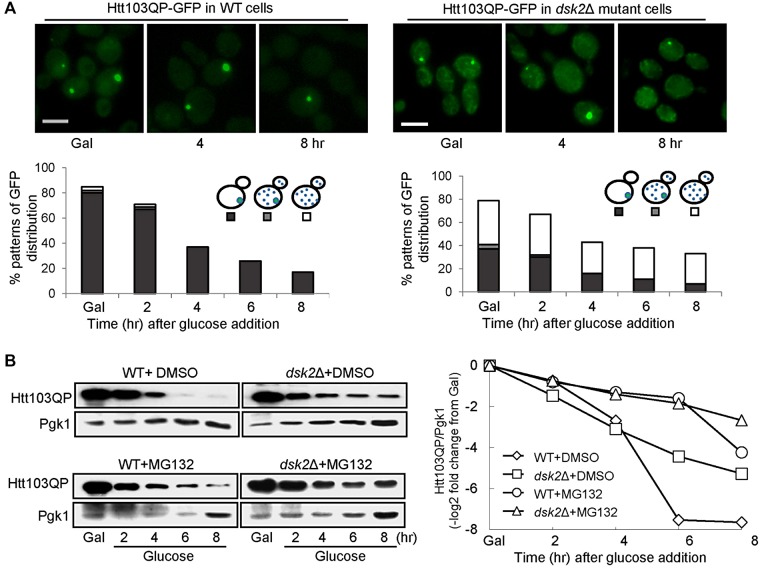FIGURE 5:
Htt103QP degradation is compromised in dsk2Δ mutants after IB formation. (A) Delayed clearance of Htt103QP-GFP signal in dsk2Δ mutants after a long period of induction. WT and dsk2Δ mutant cells were grown in galactose medium for 12 h at 30°C. After addition of glucose (2%) and HU (200 mM) into the cultures to shut off Htt103QP expression and block cell cycle progression, cells were collected at the indicated time points to examine the GFP signal by fluorescence microscopy. Top, GFP signal in representative cells at 0, 4, and 8 h after glucose addition. Bottom, percentage of cells with different GFP patterns (n > 100). Scale bar, 5 μm. (B) Htt103QP degradation kinetics in WT and dsk2Δ cells after a long induction. WT and dsk2Δ mutant cells with Htt103QP plasmid were grown in galactose medium for 12 h at 30°C. The cells were pretreated with 0.003% SDS for 3 h, and then DMSO or 75 μM MG132 was added into the cultures. After incubation for 30 min, glucose (2%) and HU (200 mM) were added into the medium to shut off Htt103QP expression and block cell cycle progression. Cells were collected at the indicated times, and Htt103QP protein levels were determined by Western blotting with anti-GFP antibody. Pgk1, loading control. Right, ratio change of Htt103QP to Pgk1 over time.

